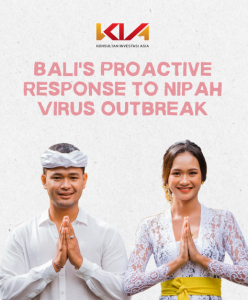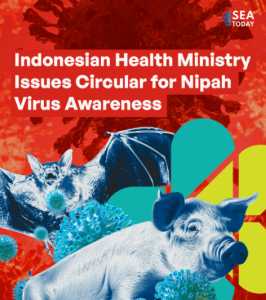Nipah Virus in Bali A Reality Check
Bali, with its picturesque landscapes and vibrant culture, beckons travelers from across the globe. However, amid the allure of this tropical paradise, it’s essential to shed light on a pressing concern: the potential threat of Nipah viruses. In this blog post, I aim to provide you with a comprehensive understanding of the situation, sharing insights, statistics, and precautions to ensure you’re well-informed and can make informed decisions about your travel plans.
Nipah Virus What You Need to Know

Understanding the Nipah Virus
The Nipah virus is a zoonotic virus, meaning it can be transmitted from animals to humans. Fruit bats are considered the natural reservoir of the virus, and humans can contract it through direct contact with infected bats, consumption of contaminated fruits, or exposure to infected animals.
The Bali Scenario
While Bali has not been a major hotspot for Nipah virus outbreaks, vigilance is crucial. In neighboring countries like Malaysia and Bangladesh, the virus has caused outbreaks in the past, primarily through the consumption of contaminated date palm sap or close contact with infected pigs.
Staying Informed: Reliable Sources and Resources
World Health Organization (WHO)
The World Health Organization (WHO) is a reputable source for comprehensive and up-to-date information on the Nipah virus. They provide insights into the virus, its transmission, prevention measures, and current global updates.
Centers for Disease Control and Prevention (CDC)
The Centers for Disease Control and Prevention (CDC) is another reliable source offering a plethora of information about the Nipah virus. From symptoms to prevention guidelines, the CDC ensures that you’re well-equipped with knowledge.
Mitigating the Risk, Practical Tips for Travelers
Stay Informed
Knowledge is power. Stay updated with the latest news and updates about the Nipah virus through reliable sources like WHO and CDC. Understand the symptoms, transmission methods, and preventive measures associated with the virus.
Practice Good Hygiene
Maintaining good hygiene is a powerful preventive measure. Wash your hands frequently with soap and water, especially after being in public places, and avoid touching your face, particularly your eyes, nose, and mouth.
Traveler’s Dilemma : Balancing Adventure and Safety
Balancing Act

Traveling, especially to a destination as beautiful as Bali, is an exciting adventure. However, in the face of potential health risks like the Nipah virus, finding the right balance between exploration and safety is crucial. It’s about making informed decisions and taking precautions without compromising the joy of travel.
Responsible Travel
Being a responsible traveler entails not only exploring new places but also respecting the local culture, environment, and health guidelines. Prioritize your health and safety, and in turn, you’ll contribute to a responsible and sustainable tourism culture.
Empowered Travel in Bali
While the mention of health risks can be unnerving, staying informed and taking necessary precautions are key to ensuring a safe and enjoyable trip to Bali. The Nipah virus is a concern, but armed with knowledge and a sense of responsibility, you can make the most of your travel experience while safeguarding your well-being.
Explore Bali responsibly, be vigilant, and let the beauty of this paradise captivate you while you stay protected and informed.
VisabyBahalapuras.com
The Most Reliable and Affordable Visa Consultant in Bali !

